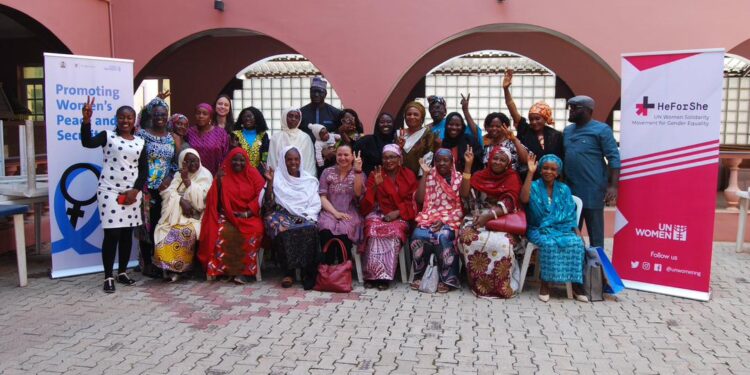By Amina Samuel, Kaduna
The United Nations, in collaboration with the Kaduna State Government, launched the second-generation Kaduna State Action Plan (SAP) on Women, Peace, and Security (WPS) and Youth, Peace, and Security (YPS) at the Umaru Musa Yar’adua Hall in Kaduna.
The event also marked the unveiling of the Kaduna State Women Economic Empowerment (WEE) policy, aimed at advancing gender equity and peacebuilding efforts.
In a goodwill message, Ms. Beatrice Eyong, UN Women Representative to Nigeria and ECOWAS, represented by Dr. Nesreen Elmolla, UN Women Deputy Representative, commended the milestone as a testament to the partnership between UN agencies and Kaduna State authorities.
The SAPs, developed with support from the UN Women, Government of Norway, and the UN Peacebuilding Fund, align with global frameworks such as the United Nations Security Council Resolutions (UNSCR) 1325 on Women, Peace, and Security and UNSCR 2250 on Youth, Peace, and Security. These resolutions underscore the critical role of women and youth in conflict prevention, resolution, and peacebuilding.
Achievements and New Objectives
Since Kaduna’s adoption of its first SAP in 2016, the state has recorded significant progress, including increased women’s participation in decision-making structures and the establishment of peacebuilding networks. The second-generation SAP (2024–2027) builds on these successes, emphasizing inclusive governance and gender-responsive policies.
UN Women highlighted the establishment of networks such as Women Mediators, HeForShe Champions, and the WPS Media Network, all contributing to conflict resolution and advocacy initiatives across Kaduna. These platforms have fostered collaboration among traditional and religious leaders, civil society, and government agencies.
Challenges and Future Directions
Despite progress, UN officials emphasized the need for stronger implementation, funding, and community-level outreach. They called on stakeholders, including lawmakers, traditional rulers, and civil society, to adopt localized versions of the SAPs and ensure effective enforcement of laws











